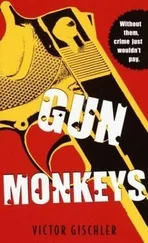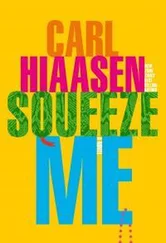Moto didn’t know what to say. He sipped his drink to buy some time. “You are a clever woman,” Moto finally admitted.
“I have my moments. So you went to Princeton, then Oxford, then served five years in Japanese Military Intelligence. Impressive.”
“How did you know that?” Moto asked.
“Oh, it’s easy enough to look up.”
It shouldn’t be. Moto had gone to some moderate amount of trouble to conceal his personal information from the general public. A routine background check should not have turned up anything. Either there was more to Becker than met the eye, or American insurance companies were damn strict.
Moto cleared his throat, and said, “Your insurance company’s file isn’t completely necessary, but it will save me some preliminary steps. How much?”
“Not for sale.”
“Ah. You are negotiating, playing hardball.”
“How much is your boss willing to pay for the card?” She sipped her martini.
“One million dollars.”
Joellen sputtered, sprayed gin all over the table. “How much?”
“It doesn’t matter. I only need the folder.”
“The card’s not worth that much.”
“Mr. Kurisaka wants it,” Moto said. Also, Kurisaka wanted to preempt any other offers and figured a million dollars would do it. Moto’s boss had also sent word to the most prestigious collectibles dealers in America. Kurisaka wanted them to contact him instead of Hyatta if the card should happen to come into their possession.
“A million?” Joellen frowned. “Is he retarded or something?”
Moto pushed his drink away, threw his napkin on the table. “This is pointless. You are a bizarre, annoying woman.” She was also completely unfeminine, a fact Moto found oddly disturbing. He stood. “This has been a most unpleasant encounter. I will say good night now.”
“Jesus, Moto,” Joellen said. “Sit down, will you? Let me make my pitch. You can leave then if you don’t like it.”
“Please be brief.” He sat.
“I already know where Folger is.”
Moto’s eyes widened. Perhaps this whole baseball card business could be concluded quickly, and he could get back to Japan. “Is he still in Pensacola?”
“What if I had the card? Instead of Folger?”
“If you can put us in contact with Folger, I’m sure a finder’s fee-”
She shook her head. “No, you’re not hearing what I’m saying. What if I had the card instead of Folger?”
Ah. “Then… I suppose we would pay you the million dollars.”
“And how would that work exactly?” asked Joellen.
“I’m not sure I understand.”
“There’s insurance fraud involved.”
“No questions asked,” Moto said.
“I’ve heard that in the movies,” Joellen said. “No questions asked. What exactly does that mean?”
“It means do whatever is necessary. Beg, borrow, or steal. This is a private transaction, and legal technicalities concern my employer not at all.”
Joellen smiled, nodded. “Beats the shit out of working for the insurance company.” She ordered another martini.
The next morning at dawn, Conner dropped Otis’s bargain binoculars onto the passenger seat of the Plymouth and drove toward the beach. His eyes blurry, stomach coffee-sour, he made the circuit of likely places.
He didn’t really know what he was doing.
By noon, he’d worked all of Pensacola Beach and half the places around Mobile, starting at Old Navy Cove and making his way west through marinas small enough for private craft but still big enough for a guy with a boat on the lam to take on fuel and provisions. He scanned the major channels with the binoculars and spotted a few sloops the right size, but none was the Electric Jenny.
Conner hadn’t told Derrick James that the whole deal was probably a waste of time. Teddy Folger and his unpaid-for boat were probably long gone. If it had been Conner, he’d have hauled ass straight across the Gulf to Mexico by now. He didn’t say that to James. Conner wanted to get paid, and there was always the chance Folger wasn’t too bright. He might be catching a suntan on his boat in the next bay or inlet. Sipping a piña colada with a stupid grin on his face like he’d gotten away with something.
So far, he had.
Conner walked to the end of his third fishing pier, scanned the horizon, saw nothing, sat down, and figured he was going about this like a sucker. The Plymouth had guzzled twenty dollars’ worth of gas, and all the sailboats began to look alike. Time to shift gears.
He drove to an IHOP, ordered a cup of coffee, and opened the manila file folder James had given him.
On Rockford Files reruns, Rockford often got his police buddy to show him the file on a suspect. Rockford would dig through the file and uncover some kind of clue that jump-started the case or nudged him in the right direction. Where the hell’s Rockford when I need him?
But the package on Teddy Folger failed to produce anything like, say, a map with a big red X labeled secret boat slip here . The file was mostly financial information. Naturally, James had wanted to make sure Folger could afford the boat. Conner couldn’t say if any of this was helpful or not. He read the file, drank coffee, picked his teeth, looked at the waitress’s legs.
He blinked, rubbed his eyes. He was drifting.
The file listed properties Folger owned and how much he paid on them each month. Another wad of papers looked like a stock portfolio. A statement from a Pensacola law firm detailed the monthly alimony payments Folger was supposed to make to his ex-wife and which of his assets she did or didn’t have a claim on.
Jenny Folger, the wife.
The boat was one of the disputed items.
Conner tsked and wondered if Teddy Folger had still loved his wife when he’d named the sloop Electric Jenny . But Folger had dumped the wife and kept the boat. Marriages end, so divorce lawyers and bartenders and Dr. Laura and third-rate repo men can earn a living too. The circle of life in a modern world.
The file seemed pretty useless. Copies of the boat’s insurance policy, copies of the contract, copies of copies. A paper clip.
Conner packed it all up and dropped two bucks on the table for coffee and tip.
He sat in the Plymouth and opened Folger’s file again, looked at the insurance agreement. The company was called Allied Nautical and specialized in maritime policies. Conner desperately wanted this information to be helpful somehow. He strained his brain so hard thinking about it, he almost shit his pants.
The paperwork from Allied Nautical had scribbling in the margins, little loops and a crude drawing of a frowny face with the tongue sticking out. Conner imagined Derrick James doodling as he made phone calls, tracked down the same leads Conner was trying to track down. Maybe Conner was spinning his wheels. He needed a new approach.
No epiphany manifested itself. But it did remind him the insurance on the Plymouth was a week late. He hated paying bills. He was bad at it. It seemed to take some kind of Herculean effort to write the check, get a stamp, write his return address on the envelope…
Conner got out of the car and went to the pay phone in front of the IHOP. He dropped in the coins, dialed the number at the top of the insurance company’s letterhead, and a young, efficient female voice answered.
“Allied Nautical, this is Maureen.”
“Hi, Maureen.” All cheerful. “This is Denver Colgate from Southbank Mortgage and Trust. I need to consult you about one of your clients.” Fake name number thirty-two from the sneaky dude’s handbook.
“How can I help you, Mr. Colgate?” Maureen asked.
“Southbank is purchasing the mortgage on a boat belonging to a Mr. Teddy Folger. Derrick James said you guys wrote the policy on that one, and we just need to make sure it’s current before we finalize the transaction.”
Читать дальше












